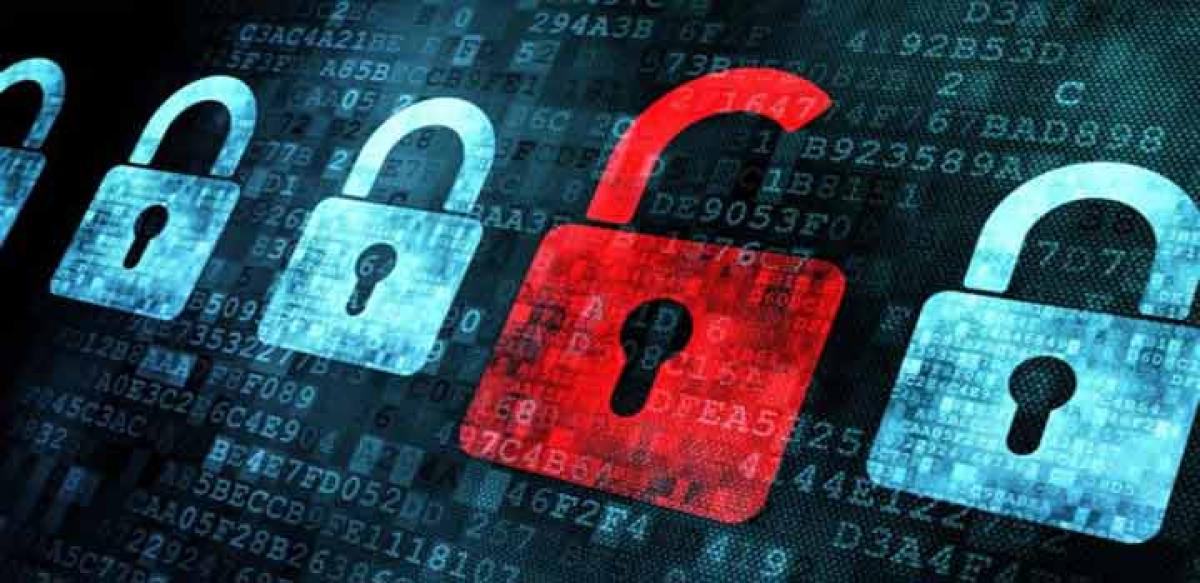Live
- Kerala Hindu leader gifts Rig Veda to Pope Francis
- OakTree School Celebrates Eight Years of Success, Announces Future Expansion
- Why plant-based milks may not be healthy
- Jharkhand: Ayushman Bharat cards in demand, Sahebganj residents rush to the centre
- Supreme Court likely to pass directions on implementation of policy to curb air pollution in Delhi-NCR tomorrow
- The first day of Group-2 Paper 1, 2 exams in Wanaparthy district ended peacefully, said Additional Collector Revenue G. Venkateswarlu
- VP Dhankhar urges corporates to invest in education
- Punjab DGP, MHA official request farmer leader Dallewal to end 20-day fast
- Stage Collapse During Swearing-In Ceremony of KUDA chairman in Kakinada
- Govt unveils ‘Jalvahak’ to boost inland waterways
Just In

Every message that you send--be it through WhatsApp, SMS, Email or any such service--must be mandatorily stored in plain text format for 90 days and made available on demand to security agencies under a draft New Encryption Policy that has triggered privacy concerns.
Encryption policy draft triggers concerns
.jpg)
New Delhi: Every message that you send--be it through WhatsApp, SMS, Email or any such service--must be mandatorily stored in plain text format for 90 days and made available on demand to security agencies under a draft New Encryption Policy that has triggered privacy concerns.
Legal action that could also include imprisonment has been proposed in the draft policy unveiled by the government for failure to store and produce on demand the encrypted messages sent from any mobile device or computer. The policy also wants everyone to hand over their encryption keys to the Government.
The draft proposes that users of encrypted messaging service on demand should reproduce same text, transacted during a communication, in plain format before law enforcement agencies and failing which the government can take legal action as per the laws of the country.
The proposed policy, issued by the Department of Electronics and Information Technology, would apply to everyone, including government departments, academic institutions, citizens and for all kinds of communications -- be it official or personal.
Generally, all the modern messaging services like WhatsApp, Viber, Line, Google Chat, Yahoo messenger etc, come with high-level of encryption and many a time security agencies find it hard to intercept these messages.
"All information shall be stored by the concerned B/C entity for 90 days from the date of transaction and made available to Law Enforcement Agencies as and when demanded in line with the provisions of the laws of the country," the draft said.
The draft has defined 'B category' as all statutory organizations, executive bodies, business and commercial establishments, including all Public Sector Undertakings, Academic institutions. The 'C category' as per the draft are all citizens, including personnel of government and business performing non-official or personal functions.
In case of the user having communicated with foreigner or entity abroad then the primary responsibility of providing readable plain text along with the corresponding encrypted information would be that of the user in the country.
Besides this, all service providers located within and outside India that use encryption technology for providing any type of services in India must register themselves with the government, as per the draft. The draft proposes to introduce the New Encryption Policy under Section 84 A of Information Technology Act 2000. This section was introduced through amendment in 2008.
The sub-section 84 C that was also introduced through the amendment has provision of imprisonment for violation of the act."Encryption products may be exported but with prior intimation to the designated agency of Government of India. Users in India are allowed to use only the products registered in India.
Government reserves the right to take appropriate action as per Law of the country for any violation of this Policy," the draft said. The last date for public to comment on the draft is October 16, 2015.
"Having a draft on issue is a welcome step. It looks at everything with prism of law enforcement. It will create a license raj. There is very much concern around privacy of citizen.
The policy wants messages to be given on demand. If my private information is sought by government, it should be done through courts," Arun Sukumar, Head, Cyber Initiative, said.

© 2024 Hyderabad Media House Limited/The Hans India. All rights reserved. Powered by hocalwire.com







